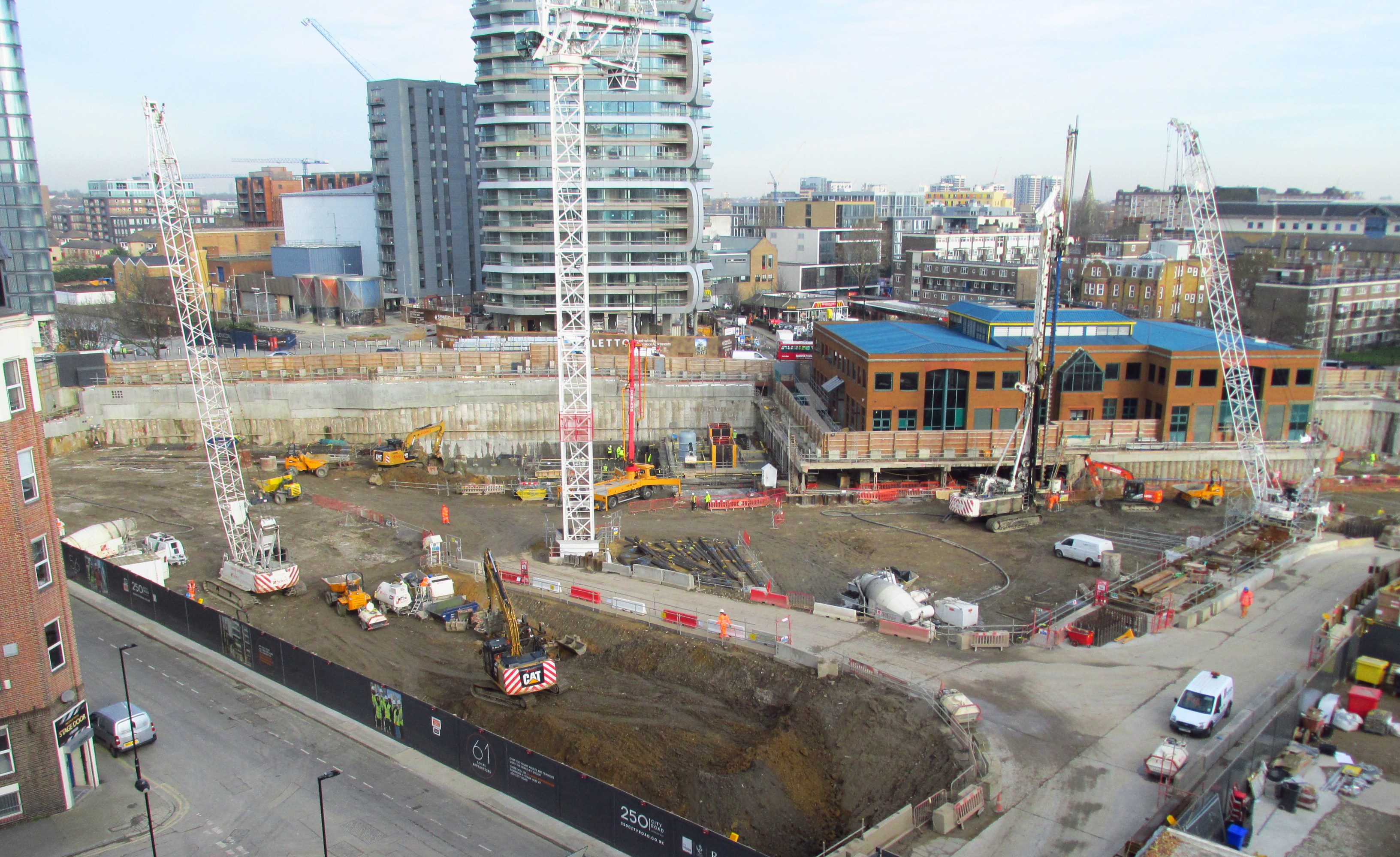
The Mayor of London released his draft housing strategy this month, setting out how he plans to ‘provide all Londoners with a decent and affordable home’. But to achieve this he needs to be much bolder, and show he is prepared to challenge the powerful interests that make housing too expensive for most of the city’s residents.
The mayor’s formal housing powers are broadly limited. But within his role in the planning system, and as a symbolic figurehead for a global city, he can wield significant power if he is willing to seriously challenge the property and finance interests dominating the housing market.
Sadiq Khan has a low baseline to start from. Just 13 per cent of the homes his predecessor Boris Johnson granted planning permission for were “affordable.” Khan aims to create more “genuinely affordable” homes, provide a ‘fairer deal’ for private renters and, in the wake of Grenfell, increase the voice of tenants in housing governance.
His housing strategy has so far tried to find consensus-building opportunities to make the housing market better. But the market is irredeemably skewed against low-income Londoners, and if he is to speak for them, he will need to make the case for wholesale housing reform.
The plans do make some inroads into the rigged market. Supporting opportunities for small builders that were wiped out at the time of the financial crisis, new obligations on developers to provide a minimum number of ‘affordable’ homes, pushing for like for like replacement of council homes sold under Right to Buy or demolished in regeneration schemes, and creating a new mechanism for the voices of tenants to be reflected in housing governance, are all worthwhile.
But weaknesses exist. Khan aims to build 90,000 of what he calls ‘genuinely affordable’ homes. Anyone in the housing sector with a conscience has long been complaining about national government’s Orwellian insistence on the use of the word ‘affordable’ to describe homes set at 80% of market rents, often only actually affordable to those earning £80-100k pa. Khan has set out a redefinition, but it seems to further muddle the situation.
His proposed ‘genuinely affordable’ homes will include those at around social rent levels for the lowest-waged Londoners, but also ‘London Living Rent’ homes for those earning up to £60k (rents which won’t be covered by current housing benefit levels), and shared ownership schemes – for people earning up to £90k pa. Figures on the split between these tenures are unavailable.
70% of Londoners earn less than £30k, and around 90% earn less than £50k. At household rather than individual income levels the median average increases to £39k, but at that point the cost of children and childcare should be considered. Most people claiming housing benefit have dependent children. Social rent levels are the only option for the vast majority of London renters that won’t leave them struggling to make ends meet.
So despite the mayor’s commitment to “genuinely affordable” homes, we still don’t know how many we’re actually getting.
Another aspect of Khan’s strategy that seems to swerve and miss the mark, is the proposed ‘proactive intervention’ in the land market; buying and preparing land to be made available for ‘genuinely affordable’ housing.
The importance of land ownership and value is increasingly recognised as a fundamental contributory factor in housing costs rocketing above incomes. Khan could keep this land under democratic control via local councils. Instead it will go to developers.
Developers aim to extract maximum profit and therefore limit the number of discounted homes provided. Their legal departments regularly outgun City Hall and councils over fine print. Without firm, transparent numbers attached to Khan’s plans he will find it more difficult to hold them to account, and we will find it difficult to hold him to account.
Khan talks a good game on lobbying national government for progressive housing policies, and his efforts there deserve supporting. Areas such as rent regulation and local government finance are in desperate need of reform. But he could start closer to home. It’s common to see London Labour councillors steaming ahead with controversial regenerations, or using rent arrears as evidence of ‘intentional homelessness’ – a criteria that blocks those who are homeless due to huge private sector rents from applying for lower cost social or council housing.
If he is worried about the cost of a housing row in his party he should consider this; in Central Hill ward in Lambeth, the Greens came within a few votes of winning a recent by-election. They are now campaigning against a huge estate regeneration. Haringey Labour is in open war over a regeneration scheme that threatens the homes of thousands. Labour’s manifesto pledges on housing inspired Londoners languishing in mould-infested, badly-wired or extortionately priced flats to the polls in huge numbers. But that support is not a given. If Khan cannot unite his party in London behind progressive housing policy they will pay an electoral price.
Khan has a chance to put words into action before the consultation period for this strategy closes in December. His strategy proposes a new commissioner responsible for listening to and reflecting the voices of social housing tenants. After the missed warnings at Grenfell Tower, this idea takes on a new urgency. In response to another recent mayoral consultation document on Estate Regeneration, tenants are asking for a democratic ballot of residents to be mandatory before the mayor signs off on new plans for regeneration schemes. If he wants low-income tenants to have faith that he will put their interests before those of developers, this would be a good place to start.
Read the mayor’s draft housing strategy and respond to the consultation here.